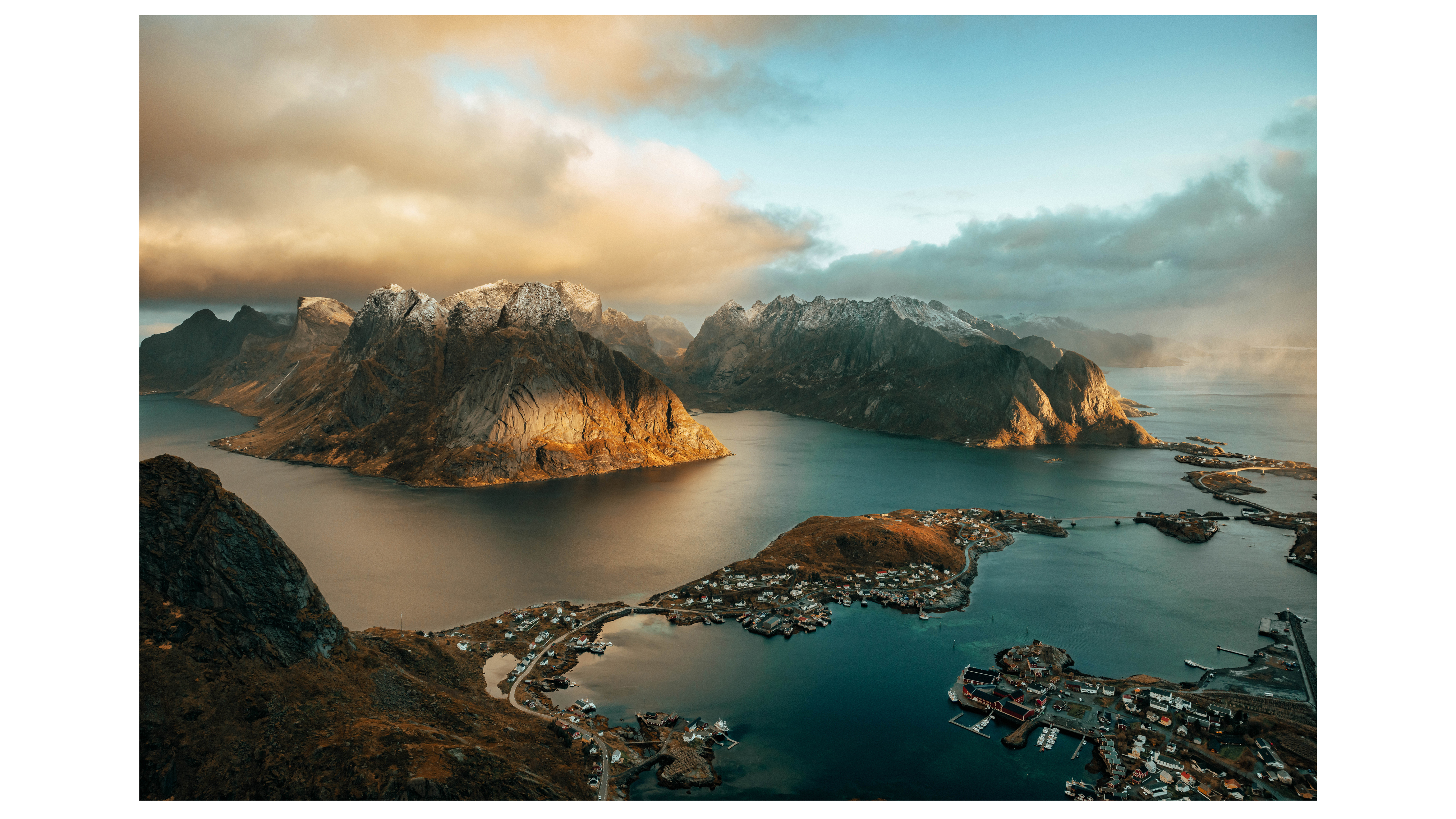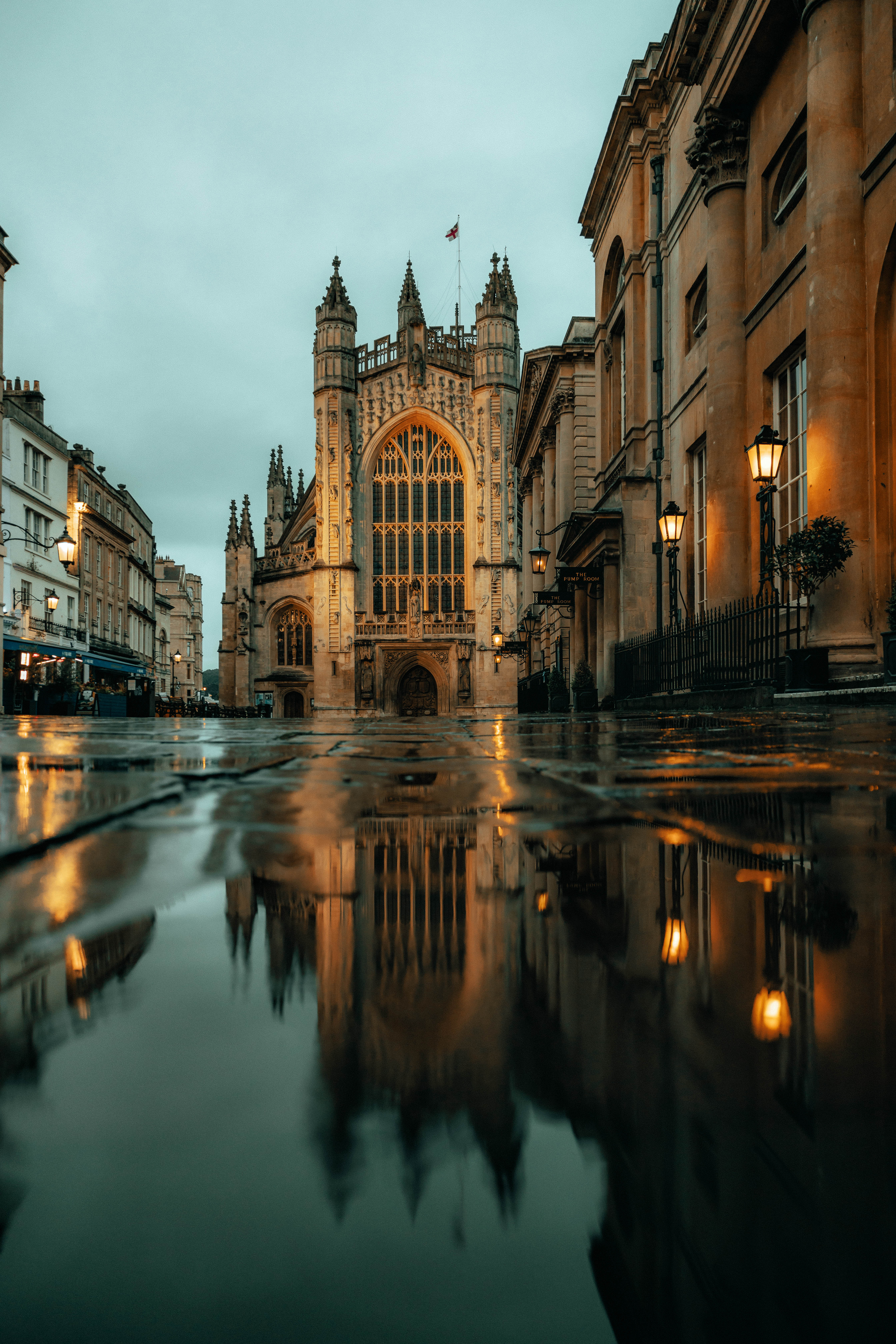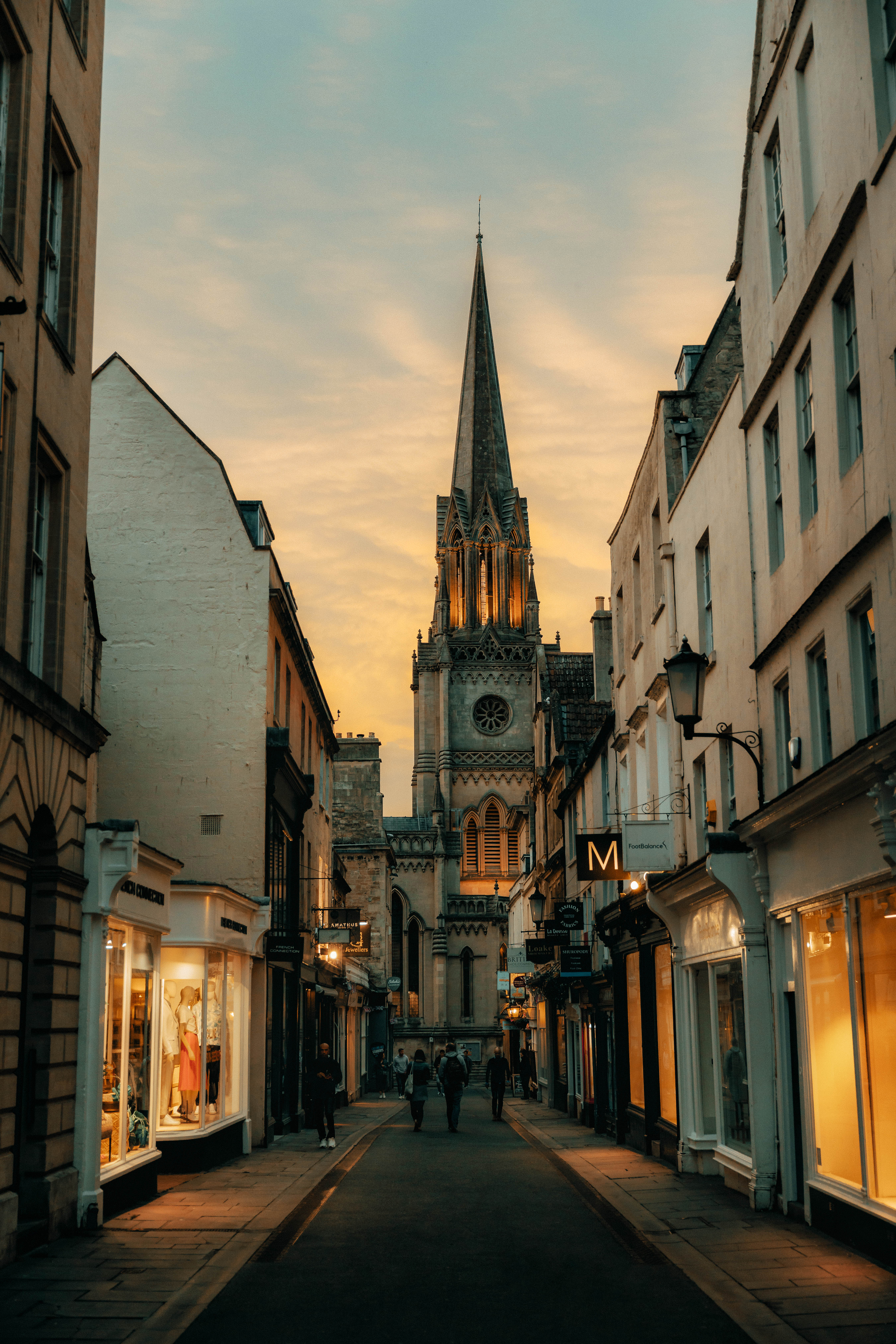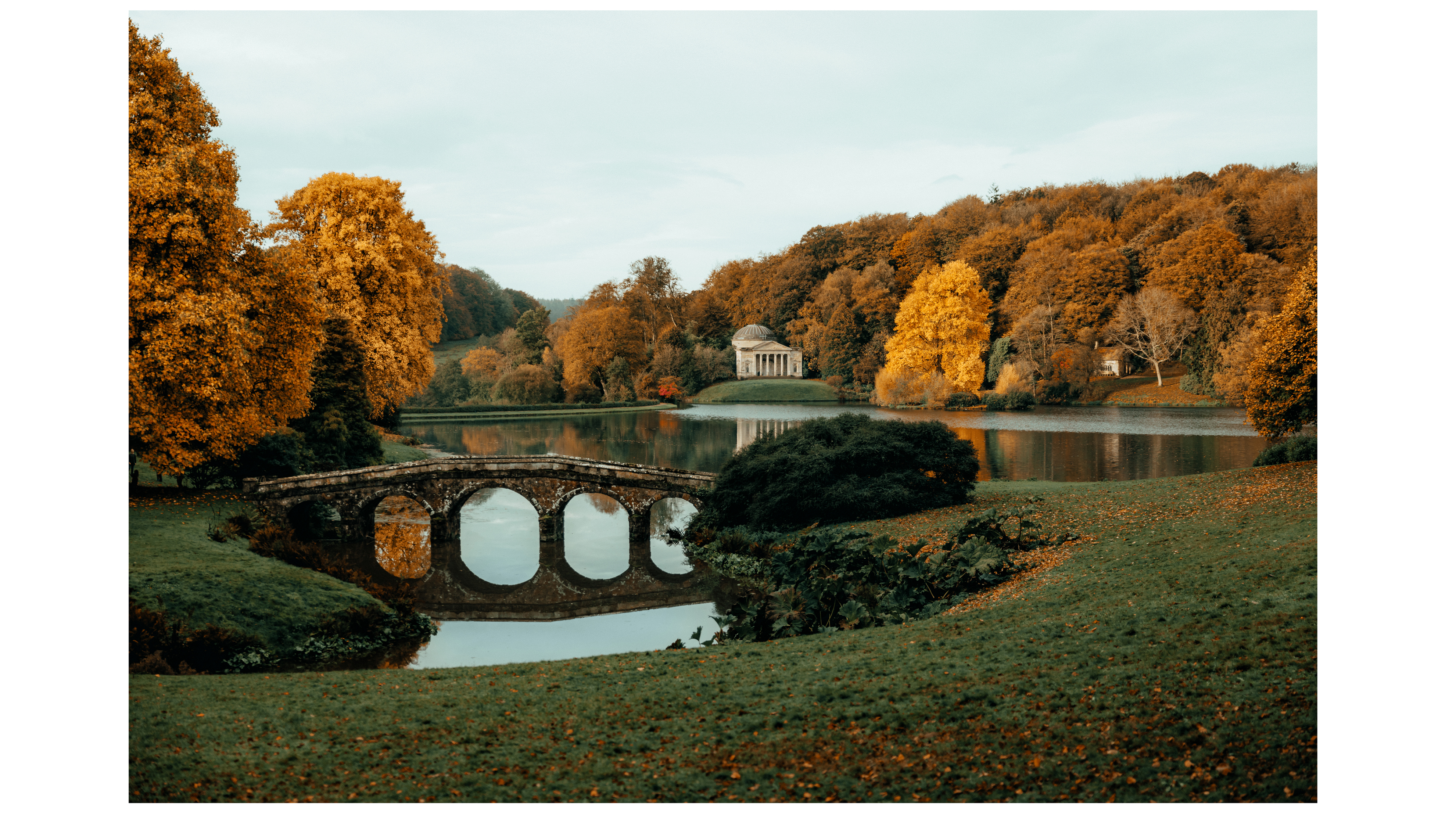
If you ask content creator and long-time Canon fan Ellis Reed what he loves about photography, it’s being part of a positive, shared community. But Ellis didn’t always want to be a photographer. He originally played the lead guitar in a band throughout his teens and ended up going to music college where he studied the media side of things.
He was interested in design, photography, and videography, and at 18 bought his first Canon DSLR. More than ten years later, Ellis is shooting for a roster of clients, working for Canon, and a part of a thriving online photography space. He’s based in Bath, UK, and loves shooting there, but is no small-town boy…
Tell us a bit about your photography journey. Where did it all start for you…
I started getting into photography back when I was in music college, learning about media creation – essentially photography and video for music. I was shooting outside of college, too, and my grandfather was also a keen photographer, so some inspiration came from him.
I was 18 when I first bought a proper camera, then over the years, I took it more seriously and began to love going out on adventures and just taking pictures of different architecture, street scenes, and landscapes. I also do UX design work, and I was considering how I could incorporate shooting into the design side of things. A few years on, my photography has turned into freelance.
Do you think that design background has influenced your image-making?
They all share similar ideas. Before I was a designer, I was a musician, and so the design work sprung up from bands needing posters. But each of those things – design, photography and music – share similar processes in terms of how your brain approaches them. That said, I try to keep them separate.



What does photography – both as a passion and commercially – look like for you now?
My Instagram feed only has the consistent lifestyle imagery that I would typically share, but I like shooting a real mix of everything. From a commercial standpoint, my work is incredibly varied. It’s a mix of my passions around landscapes and tech, plus product and event photography, and portraits. I’ve started doing a lot of content creation style work for businesses and their social media platforms so that they’ve got content that can be shared with a wider audience. It has to speak a consumer language, which I find interesting.
Have you ever had any formal training?
If you consider YouTube and Google formal training, then yes! In terms of actual photographic training, no. In the beginning, it was very much me just watching a ton of YouTube videos until two or three in the morning and learning as I went. The beauty of photography is that you can learn at your own pace, and as long as you know the basics it rolls on from there. Over time, you can watch how your shots develop.
You mentioned your grandfather was into photography. Who inspires you now?
Alen Palander is probably one of my favorite photographers, just because he touches on a lot of the styles that I aspire to. My granddad, too. He was very much into wildlife, nature, and flower and plant photography, often using a shallow depth of field. A lot of my techniques and settings now were probably influenced by him.
As my photography has progressed, I surround myself with very like-minded people, like one of my best friends, Lloyd Evans, who is a very talented photographer. I think it’s important to have good people around you to bounce off. Another real beauty of photography is the community. That, for me, was the inspiration and kick to just keep going with it and get better.
You’re part of several Instagram communities and moderate the account @igersbath. How important has the platform been for you?
Instagram has probably been the most important thing for me. The community for photography – not necessarily just Instagram – is ridiculously supportive in the UK. It doesn’t feel like everyone’s competing with each other. Instead, everyone just wants to be friendly and bounce ideas around The politics of the algorithm can be frustrating, but I try to look past that. I owe a lot to Instagram in terms of what it’s given me; some of my best friends today, and some fantastic clients that I love working with.
Instagram can be positive and inspiring, but social media definitely has its challenges…
Social media can be draining and feel like a full-time job at times. With the constant changes, it’s often difficult to kind of keep up, but I suppose that’s the modern way, isn’t it? Some people use Instagram purely as a way to share photos because it’s their hobby. But if you’re on Instagram because you’re trying to build your career and business, you’ve got to try and adapt to all of the trends and features of different platforms. It can be frustrating, and at times the best thing to do is step back and take a break from it all.
Is there anything that you find difficult about being part of the photography industry?
There’s a lot of competition, but I don’t see that as a problem. I like the fact that there’s a lot of variation, and the term community over competition is something I believe in quite heavily. You’ve got to get your name out there, and that takes work. Comparing yourself to others can be very damaging to your mental health but then also in terms of how you approach your business.
You have a particular visual style. How would you describe it?
I’m trying to create a cinematic interest in the way that I use coloring and lighting. I like playing around with contrast levels, and some of my work can be very low in contrast, but I don’t know how I would describe it more fully. I’m probably not doing myself justice!
I’d say that cinematic is a good way to describe it. Has your editing approach and style taken time to hone over the years?
I’d say about five years of just practising and trying to learn lots of different things, and then the last five years properly honing in on my actual style. I originally held back from selling my own preset pack, because I wasn’t sure if I wanted people to copy my work, so to speak. From a workflow perspective, I’ll use set presets for certain jobs when I just need to get the work out. When I want to get creative, I’ll have a base to start from and then experiment a bit more.
You said you shoot a wide variety of subjects. What photography projects excite you?
I’ve been very lucky with my career so far in that I’ve been able to work with some really lovely clients. And it’s not necessarily a case of “Oh, I want
to do this particular project,” but I want to work with certain people.
I think it’s about being selective in trying to work together with someone, rather than working for them.
I did a project with Canon not so long ago, which required me to shoot something different every day for seven days and push my creative boundaries. I get excited by doing something out of the ordinary like that, or something that I might not have tried before.
Bath is a beautiful part of the UK and features in a lot of your work. What is it that appeals to you about shooting on your doorstep?
I grew up about 30 minutes north of Bath, but I’ve always lived in and around the area. I love capturing the lines and shapes within the city, and you get such a wide variety of views; from bustling streets to gorgeous architecture and some really peaceful areas. The way the sunrise and the sunset sort of shape the light across the Georgian buildings really appeals to me. It’s incredibly dynamic.
So you’re not travelling to exotic destinations all the time?
I think that can be one of the funny misconceptions people have when they think of professional photographers and videographers. There’s always awesome travel and outdoor content that makes it seem like that’s the norm and the everyday, but about 80 percent of the time I’d say we are at a desk editing or doing admin.

What’s the essential gear that you always take with you?
My current camera is the Canon EOS R5, and my backup is the Canon EOS R. My go-to lenses are the Canon RF 70-200mm F2.8L IS USM and the Canon RF 24-70mm F2.8L IS USM. I also have the Canon EF 50mm f/1.4 USM and Canon RF 85mm F1.2L USM but I think of the best Canon RF lenses, my next lens purchase would either be the Canon RF 50mm F1.2L USM or the Canon RF 15-35mm F2.8L IS USM.
I have a real problem with fingerprints and dust, so a lens cloth and a blower are also literally the most essential things for me to carry. I like things looking pristine and in really good condition so you’ll often catch me polishing down my gear.
I am also a big fan of the Polar Pro Peter McKinnon variable filter, handy for the video side of things. I also use a Tiffen Black Pro-Mist filter, to control any highlight flares and reduce contrast. The light looks amazing for atmospheric stills with the Bath stone.
Lastly, I’m a massive Peak Design fanboy. As well as the everyday backpack (30-liter size) I also use their Sling duffel bag, plus the Travel Tripod to film on, and I use the Tech Pouch for storage, cables, and USB dongles.
What made you upgrade to the Canon EOS R5?
I wanted something that had some of the best specs for video and stills because I love doing both. The R5 is the daddy of Canon cameras. It’s got fantastic video capabilities and incredible photo quality. Having the balance allows me to do a tonne of different commercial work with just one camera.
Maybe at some point, I’ll have a dedicated photo camera and then a dedicated cinema camera like the Canon EOS C70. But at the moment, especially as a content creator, I'm enjoying being able to kind of switch between both stills and video so easily with the best output.
Have you always used Canon gear?
Yes! The Canon 550D was my first Canon DSLR, and I had a few Canon point and shoots before then. I’ve shot commercially with other cameras where certain cameras were required, but Canon is always what I lean towards.
When I use a Canon, there’s just something that feels really right and very natural to me. And that’s something that I find comforting. At the end of the day, a camera is a tool, but if you can enjoy it as your main piece of gear, and you get what you need from it, then that’s important.
What’s coming up next for you?
For me, it’s all about a slow progression over time. I want to keep building on social media, not just Instagram, and I’m currently in the process of making a print store. I’d love to keep growing my client base and taking on a lot of different projects. For me right now, it’s very much about not putting too much pressure on myself to hit certain goals but keeping riding the wave and seeing what comes my way. I find that if you focus on all of the little tasks, over time you start hitting your major goals.
A longer version of this interview originally appeared in Issue 204 of Photo Plus magazine. Click the link below to see our latest special subscription deal!







